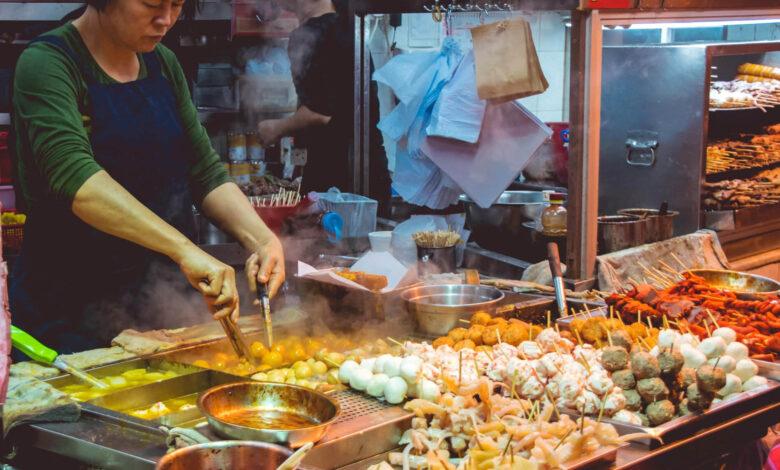Savoring Street Food Safely: A Culinary Traveler’s Guide
Street Food Adventures: Relishing Local Delights with Confidence and Caution

Street food is the heart and soul of many cultures around the world. It offers an unparalleled glimpse into local flavors, traditions, and culinary secrets passed down generations. However, as appetizing as street fare can be, it comes with its own set of precautions. To ensure that your gastronomic adventure doesn’t lead to any unpleasant experiences, we’ve compiled an in-depth guide to help you savor street food safely.
1. Research Beforehand:
Before diving into the local food scene, arm yourself with knowledge. Websites, travel forums, and food blogs can provide insights into the most popular and trusted street food vendors or dishes in the area. Reviews by other travelers can be invaluable in identifying must-try spots and dishes to avoid.
2. Observe Cleanliness:
A good first impression counts. If the vendor’s stall, equipment, and surroundings appear clean, it’s a positive sign. It’s especially important to see if vendors use gloves or clean utensils, indicating a level of hygiene awareness.
3. Freshly Cooked is Best:
The sizzle and aroma of freshly cooked food not only entice your senses but are also indicative of a safer bet. Pre-cooked food sitting out, especially in the heat, can be a breeding ground for harmful bacteria. Always opt for dishes made to order and served piping hot.
4. Check the Crowd:
Local patronage is a good benchmark for quality. If you spot a stall frequented by locals or with a long queue, it’s likely a trusted spot. A high turnover also ensures ingredients are used up quickly, guaranteeing freshness.
5. Beware of Raw Ingredients:
While a crisp salad or fresh oysters might be tempting, raw foods come with a heightened risk of contamination. If you’re itching to try something raw, ensure it’s fresh and has been stored properly—like seafood kept on ice.
6. Water and Ice Caution:
Waterborne diseases are common in many parts of the world. Stick to bottled water, even for brushing teeth. When it comes to icy refreshments, ensure the ice is made from purified water, especially in regions with known water contamination issues.
7. Watch the Cooking Process:
Observing the cooking process can be both educational and reassuring. It gives you an idea of the ingredients, preparation methods, and hygiene levels. Particularly, note if vendors have separate utensils or sections for raw and cooked ingredients, minimizing cross-contamination.
8. Be Cautious with Condiments:
That array of sauces and toppings can elevate your street food experience. However, they can also be a hotspot for germs if not stored or handled correctly. If they’ve been out in the sun for hours, it might be best to skip them.
9. Know Your Tolerance:
Everyone’s digestive system is unique. If you have a sensitive stomach, it’s wise to be extra careful. Similarly, if you aren’t used to fiery spices, starting with milder options can prevent unexpected discomfort.
10. Ask for Recommendations:
Sometimes, the best advice comes from personal experiences. Chat with locals, fellow tourists, or even the staff at your accommodation. Their insights can lead you to hidden gems or caution you against problematic spots.
11. Vaccinations and Medications:
Prevention is better than cure. Ensure you’re vaccinated against common foodborne illnesses prevalent in the region you’re visiting. A travel clinic or your physician can guide you. Additionally, carrying a basic first-aid kit with anti-diarrhea medication, antacids, and rehydration salts can be a lifesaver.
12. Trust Your Instincts:
You’re the best judge of what feels right. If a stall or dish doesn’t inspire confidence or feels dodgy, it’s okay to pass. Your safety should always be the top priority.
13. Limit Alcohol Consumption:
While a cold beer might pair perfectly with spicy street eats, remember that alcohol can impair judgment. Moderation ensures that you make sound decisions about where and what to eat.
14. Practice Basic Hand Hygiene:
Your hands can be carriers of germs. Carrying a pocket-sized hand sanitizer or frequently washing your hands can drastically reduce the risk of ingesting harmful microbes.
15. Learn Local Food Safety Norms:
Familiarize yourself with local food safety practices and standards. In some places, certain foods might be considered delicacies but come with inherent risks. Knowing these nuances can guide your food choices.
In conclusion, street food is a window into a culture’s soul, offering delights that are often unmatched by upscale restaurants. With the right precautions, you can dive deep into these flavors, ensuring that your memories are filled with culinary delights, not health nightmares. So, arm yourself with these tips and embark on a delicious journey, one bite at a time!




Facebook Comments